Omega- 3 fatty acids are essential cornerstones of human nutrition. They are deemed ‘essential’ because we need them for proper health-much like certain vitamins and minerals- but cannot produce them on our own. We must therefore consume these fats through diet or supplementation. Omega-3 fatty acids are required for a number of body functions, from proper blood flow to brain development; these long chain fatty acids are integral components of tissues and organ systems throughout the body, including the heart, skin, joints, eyes and immune system. In nature, omega 3s occur as Alpha Linolenic Acid (ALA), found mostly in plants, and as long-chain EPA and DHA, which primarily originate from cold-water fish. The body is able to slowly convert the shorter chain ALA to the more active long-chain, EPA and DHA. However, many people lack the enzymes delta-5 and delta-6 desaturase necessary to make the conversion, making a higher dietary intake of EPA and DHA necessary. In addition, major changes in Western diet over the last century have led to a decrease in the general consumption of omega-3 fatty acids, and a dramatic increase in the dietary ratio of omega-6: omega-3. Since omega-3 fatty acids are known to benefit cardiovascular health, support healthy brain function and cognition, and have also been proven to maintain a healthy inflammatory response, achieving the proper balance of omega-3s has become an important health strategy, requiring supplementation for most people. [1] The American Heart Association recommends that those concerned about blood lipids take up to 4 grams of omega-3 fatty acids per day. [2]
MegaOmega
$64.00
CLINICAL APPLICATIONS
- Supports Cardiovascular Health and Blood Sugar Metabolism
- Supports Cognitive Function and Healthy Brain Development
- Supports Healthy Skin, Joints & Connective Tissues
- Increases Visual and Ocular Health
- Helps Maintain a Healthy Inflammatory Response and Strengthen Immune Function
This product is a high-concentration fish oil sourced from waters off the Chilean coast. As the world’s least industrialized coastline, these cold, fresh waters provide the cleanest, most sustainable source of fish in the world. This product provides 820 mg of eicosapentaenoic acid (EPA)and docosahexaenoic acid (DHA) per soft gel as natural triglycerides, the preferred form with superior absorption. To stabilize the oil, vitamin E (as mixed tocopherols) and rosemary extract are used to ensure maximum purity and freshness. This exclusive fish oil is purified, vacuum distilled and independently tested to ensure heavy metals, pesticides and polychlorinated biphenyls (PCBs) are removed to undetectable levels. Extensive research has shown that EPA and DHA from fish oil enhance cardiovascular health, promote better brain function, and support healthy skin, joints & connective tissues. With over 10,000 published studies in the last three decades, EPA and DHA from fish oil are among the most researched natural ingredients available and have a long history of safety and efficacy.
Overview
Fish Oil Delivery – Triglycerides vs. Ethyl Esters†

This product has 820 mg of EPA and DHA in a natural, bio- identical triglyceride form, the form found in nature, for enhanced absorption and better assimilation into the body.
Omega-3 Depletion†
An accumulating body of research shows that the typical Westernized diet does not provide a sufficient amount of omega-3s for optimal health. Additionally, insufficient conversion of ALA to the active EPA and DHA may reduce the amount available for use in organs and tissues. Symptoms of omega-3 deficiency are common and often overlooked. These may include dry, itchy or flaky skin, poor sleep quality, poor circulation, eye discomfort, and mood imbalance.[5]
Cardiovascular and Blood Sugar Health†
Omega-3 fatty acids have long been known to benefit cardiovascular health. The well-known GISSI-Prevezione trial found that just 1 g a day of omega-3 fatty acids had a significant impact on cardiovascular health after three to four months of consumption. [6] EPA and DHA have been shown to modulate levels of fat in the blood, [7] and a meta-analysis of 31 placebo-controlled trials found that for each gram of omega-3s consumed, there was improved support for healthy blood pressure levels. [8] Population studies have also reported that EPA and DHA support better blood sugar balance in populations consuming large amounts of the n-3 long-chain PUFAs. [9]
Additional Benefits of Omega 3 Fatty Acids†
In addition to their well-known cardiovascular benefits, omega-3 fatty acids play a central role in brain development, mood enhancement, improved cognition, joint comfort and visual acuity.
Mood enhancement†
A double-blind study which randomly assigned participants with low mood to either placebo, 1 g/day or 2 g/day of EPA found significant improvement with EPA compared with placebo in balancing mood, at both doses tested. [10]
Increased Mental Focus †
In a recent UK study, omega-3 blood levels were shown to be directly related to improved measures of cognition, performance and behavior among healthy children with below average reading ability. [11]
Joint Comfort †
A dose of 1,200 mg per day of omega-3 essential fatty acids were found to improve back and joint discomfort among 125 people, with 88% choosing to continue supplementation after the study’s end. [12] Fish oil has also been shown to improve tender joints and morning stiffness after 3 months of consumption.
Visual Acuity †
A study evaluating the long-term effects of EPA and DHA on visual development in 136 school-age Inuit children exposed to high levels of n-3 PUFAs during gestation, found beneficial effects of DHA intake during gestation on visual acuity at school age. [13] Eating oily fish at least once per week compared with less than once per week was also found to enhance visual clarity and reduce commonly occurring visual deterioration in adults. [14]
References
- Connor WE. Importance of n-3 fatty acids in health and disease. Am J Clin Nutr. 2000 Jan;71(1 Suppl):171S-5S.
- http://www.heart.org/HEARTORG/GettingHealthy/ NutritionCenter/HealthyDietGoals/Fish-and-Omega-3- Fatty-Acids_UCM_303248_Article.jsp
- Yang LY, Kuksis A, Myher JJ. Lipolysis of menhaden oil triacylglycerols and the corresponding fatty acid alkyl esters by pancreatic lipase in vitro: a reexamination. J Lipid Res. 1990 Jan;31(1):137-47.
- Dyerberg J, Madsen P, Møller JM, Aardestrup I, Schmidt EB. Bioavailability of marine n-3 fatty acid formulations. Prostaglandins Leukot Essent Fatty Acids. 2010 Sep;83(3):137-41.)
- http://umm.edu/health/medical/altmed/supplement/ omega3-fatty-acids
- Dietary supplementation with n-3 polyunsaturated fatty acids and vitamin E after myocardial infarction: results of the GISSI-Prevenzione trial. Gruppo Italiano per lo Studio della Sopravvivenza nell’Infarto miocardico. [No authors listed]
- Roche HM, Gibney MJ. Effect of long-chain n-3 polyunsaturated fatty acids on fasting and postprandial triacylglycerol metabolism. Am J Clin Nutr. 2000 Jan;71(1 Suppl):232S-7S.
- Morris MC, Sacks F, Rosner B. Does fish oil lower blood pressure? A meta-analysis of controlled trials. Circulation. 1993 Aug;88(2):523-33.
- Nettleton JA, Katz R. n-3 long-chain polyunsaturated fatty acids in type 2 diabetes: a review. J Am Diet Assoc. 2005 Mar;105(3):428-40. ScienceVoice Consulting, Denver, CO 80205, USA.
- Frangou S, Lewis M, McCrone P. Efficacy of ethyl- eicosapentaenoic acid in bipolar depression: randomised double-blind placebo-controlled study. Br J Psychiatry. 2006 Jan;188:46-50.
- Montgomery P, Burton JR, Sewell RP, Spreckelsen TF, Richardson AJ. Low Blood Long Chain Omega-3 Fatty Acids in UK Children Are Associated with Poor Cognitive Performance and Behavior: A Cross-Sectional Analysis from the DOLAB Study. PLoS One. 2013 Jun 24;8(6):e66697.
- Maroon JC, Bost JW. Omega-3 fatty acids (fish oil) as an anti-inflammatory: an alternative to nonsteroidal anti-inflammatory drugs for discogenic pain. Surg Neurol. 2006 Apr;65(4):326-31.
- Jacques C, Levy E, Muckle G, Jacobson SW, Bastien C, Dewailly E, Ayotte P, Jacobson JL, Saint-Amour D.J. Long-term effects of prenatal omega-3 fatty acid intake on visual function in school-age children. Pediatr. 2011 Jan;158(1):83-90, 90.e1.
- Augood C, Chakravarthy U, Young I, Vioque J, de Jong PT, Bentham G, Rahu M, Seland J, Soubrane G, Tomazzoli L, Topouzis F, Vingerling JR, Fletcher AE. Oily fish consumption, dietary docosahexaenoic acid and eicosapentaenoic acid intakes, and associations with neovascular age-related macular degeneration. Am J Clin Nutr. 2008 Aug;88(2):398-406.
DIRECTIONS
1 soft gel capsule per day or as recommended by your health care professional.
DOES NOT CONTAIN
Wheat, gluten, dairy products, peanuts, tree nuts, egg, artificial colors, artificial sweeteners or preservatives.
CAUTIONS
If you are pregnant or nursing, consult your physician before taking this product.
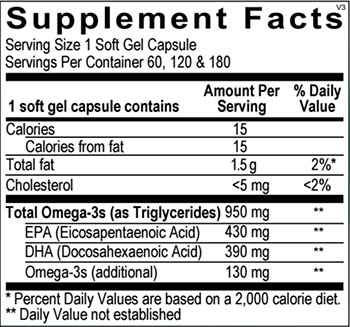
† This statement has not been evaluated by the Food and Drug Administration. This product is not intended to diagnose, treat, cure, or prevent any disease.

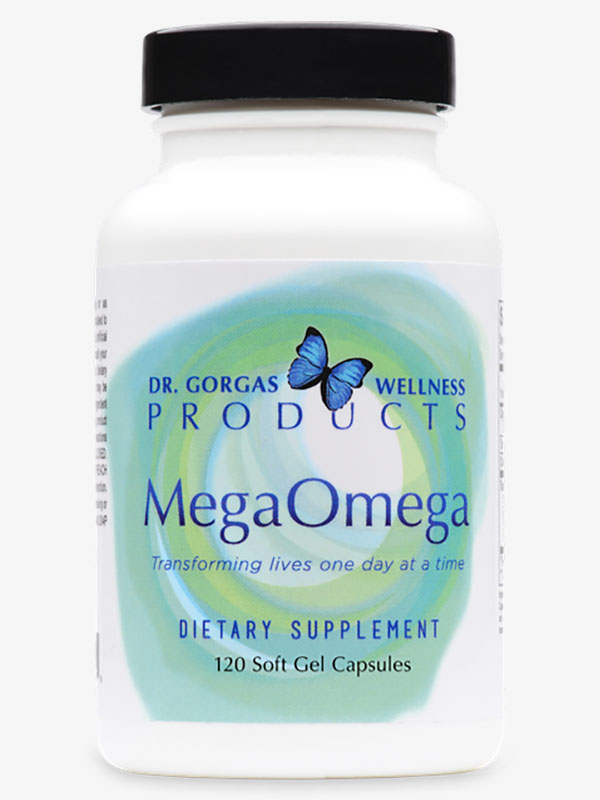
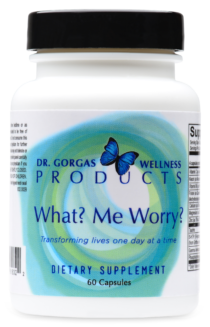
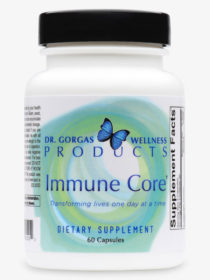

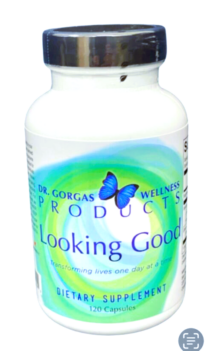
Reviews
There are no reviews yet.